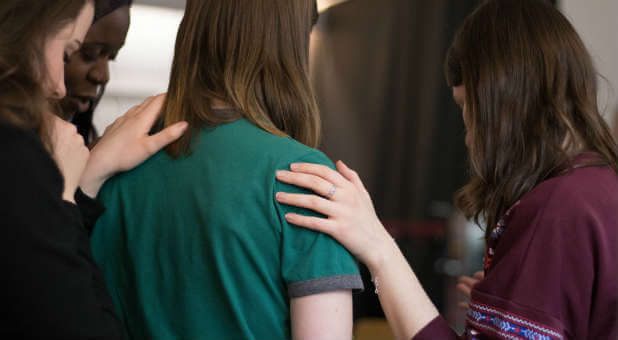Sparks fly when we start talking about the role of women in our churches. Jesus commended Mary for her choice to sit and learn from Him. You didn’t sit at the feet of a rabbi so you could hear a therapeutic sermon; you became a student of the teacher so you could one day teach yourself.
I think we need to widen the cultural lens on the role of “teacher.” For most 21st-century Americans, when we hear the term “teacher,” we have flashbacks to fifth grade when we spoke out of turn and had to sit on the bench during recess while everyone else got to play kickball. The teacher held the ultimate authority over the classroom, and the student was not permitted to question or disagree.
In first-century Palestine, the rabbi was honored, and his words held weight because of his role. However, rabbis frequently disagreed with one another. There are legends of rabbis entering synagogues complaining that no one would disagree with them allowing them to debate the Scriptures. Even rabbinical students would later disagree with their former teachers and apply the law differently than they had been taught. The rabbis informed the students of their interpretation and application of the Scriptures, but they did not hold ultimate authority as to how the students ended up applying the Scripture themselves. Frankly, I don’t think their rabbis ever expected them to.
N.T Wright explains, “To sit at someone’s feet meant, quite simply, to be their student. And to sit at the feet of a rabbi was what you did if you wanted to be a rabbi yourself. There is no thought of learning for learning’s sake. Mary has quietly taken her place as a would-be teacher … Mary stands for all those women who, when they hear Jesus speaking about the kingdom, know that God is calling them to listen carefully so that they can speak of it too” (Wright, Luke for Everyone, 131).
We need to differentiate between the role of teacher—sharing one’s understanding, interpretation and application of the Scripture—and the role of authority. Pastors and elders hold the role of authority over the church; they are called to exercise order and spiritual discipline if need be. This is different than the rabbinic role of teacher. Paul, a former rabbinic student himself, speaks of the difference in the church, ‘”He gave some to be apostles, prophets, evangelists, pastors, and teachers, for the equipping of the saints, for the work of service, and for the building up of the body of Christ” (Eph. 4:11-12).
Women constitute at least half of any church body. Jesus invited them to learn and wrestle though the Scriptures along with the men in the example of Mary. Inviting them to share their perspective doesn’t constitute demanding submission from those who listen. Historically, the church has not done well with respectfully debating differing opinions on the application of Scripture. Maybe it’s time to begin by allowing women to humbly begin asking questions and offering their thoughts. Has anyone else noticed in this account in Luke’s Gospel that the only person to be rebuked by Jesus was the one who insisted women only belong in the kitchen? {eoa}
Erica Wiggenhorn is the author of Unexplainable Jesus, An Unexplainable Life and The Unexplainable Church, by Moody Publishers. For more about Erica’s writing and speaking ministry, visit EricaWiggenhorn.com.
















































